THIS WEEK FROM DPIC
Week of December 23, 2019 – January 5, 2020
http://www.deathpenaltyinfo.org
What's New
Death Sentences Decline by More than Half in Decade of the 2010s
Posted: January 3, 2020
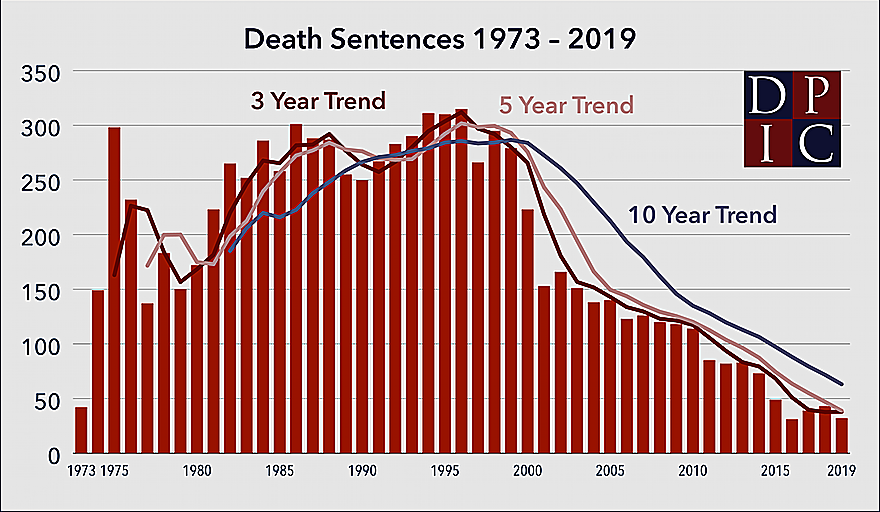 Death sentences imposed in the United States fell by more than half over the course of the 2010s, continuing a steep nationwide decline that has seen death sentences fall by more than 89% since the peak death sentencing years of the mid 1990s. Fewer death sentences were imposed in the second half of the 2010s than in any other five-year period since capital punishment resumed in the United States in 1973. [Click here to enlarge image]
Death sentences imposed in the United States fell by more than half over the course of the 2010s, continuing a steep nationwide decline that has seen death sentences fall by more than 89% since the peak death sentencing years of the mid 1990s. Fewer death sentences were imposed in the second half of the 2010s than in any other five-year period since capital punishment resumed in the United States in 1973. [Click here to enlarge image]
A Death Penalty Information Center analysis of sentencing data found that three-, five-, and ten-year death sentencing rates all fell compared to their corresponding prior time periods. The United States imposed an average of 38.7 new death sentences between 2017–2019, which marked a 24.2% decline from the average of 51.0 per year imposed across the country in the preceding three-year period from 2014–2016. The five-year annual average of 39.2 new death sentences imposed between 2015-2019 was 55.1% below the average of 87.4 new death sentences imposed per year from 2010–2014, a decline of more than half. Similarly, the ten-year death-sentencing numbers reflected a decline by more than half, with the annual average of 63.3 new death sentences imposed per year over the course of the 2010s falling 56.6% below the average of 145.8 new death sentences per year in the first decade of the 21st century.
The actual number of death sentences imposed starkly demonstrated the magnitude of capital punishment’s decline. There were 825 fewer death sentences in the decade of the 2010s than in the decade of the 2000s, a drop that was 192 greater than the number of new death sentences actually imposed. The decline reached historical lows in the second half of the decade, when each year produced fewer than fifty new death sentences. The only other year in which death sentences were that low was in 1973, the year after the U.S. Supreme Court had struck down existing death-penalty statutes and before many states had enacted new capital punishment laws.
The second half of the 2010s produced 635 fewer new death sentences per year than the years 2000-2004, a decline of 76.4%, or 127 death sentences per year. The nation imposed 241 fewer new death sentences in 2015-2019 than in first half of the 2010s, a decline of 48.2 new death sentences per year.
Read more
Report Addresses Death-Row Family Members’ Barriers to Mental Health Care
Posted: January 2, 2020
 Families who have a loved one on death row, or who have experienced the execution of a loved one, suffer a variety of adverse mental health effects, including depression, anxiety, and Post-Traumatic Stress Disorder (PTSD), according to a new report by the Texas After Violence Project (TAVP). The report, Nobody to Talk to, describes the mental health challenges faced by family members of death row prisoners and the special difficulties those family members experience in seeking mental health care that addresses their situation.
Families who have a loved one on death row, or who have experienced the execution of a loved one, suffer a variety of adverse mental health effects, including depression, anxiety, and Post-Traumatic Stress Disorder (PTSD), according to a new report by the Texas After Violence Project (TAVP). The report, Nobody to Talk to, describes the mental health challenges faced by family members of death row prisoners and the special difficulties those family members experience in seeking mental health care that addresses their situation.
TAVP found that death row families faced unique hardships in obtaining mental health treatment resulting from the stigma of being connected to a death-row prisoner and a lack of understanding of their experiences. The report summarizes the current state of research on the psychological effects of having a family member sentenced to death. Not surprisingly, that research documented high rates of depression and symptoms of PTSD among family members of capital defendants, death-row prisoners, and people who had been executed.
TAVP reported that families affected by the death penalty face many of the same challenges experienced by other distinctive groups who have been traumatized by their exposure to violence, but also face the social stigma and guilt-by-association from having a loved one charged with or convicted of capital murder. “Researchers and advocates look both at how the experience of these families is like the experience of other victims of violent loss (particularly family members of murder victims) and how it is distinct from other experiences of loss because of the particular characteristics of the death penalty,” the report explains.
Quoting a 1983 study by Michael Radelet, the report notes that, “in contrast to others facing loss, these families must know that the death of their loved one is actively desired by others.” Death-row families also share many characteristics with other family members of prisoners, including family separation, navigating the criminal justice system, and dealing with prison visits and phone calls, but with the added difficulty of the looming death of their loved one. Because of the “combination of knowledge and uncertainty inherent in the often-repeated cycle of death sentence, litigation, and temporary reprieve means that the family members experience ‘anticipatory grief’ over an extended period of time... and the emotional whiplash of hopes raised and dashed and then raised again, sometimes several times in succession.”
Family members of death row prisoners face the same common obstacles to obtaining mental health care faced by the general population, including financial barriers and negative views of psychological medication. However, death-row family members also reported hesitation or ambivalence about seeking help for themselves when their relative on death row was in greater need of help, and also worried that providers would not understand their situation, would not be familiar with the death-penalty system, or would judge them or their family.
To address these special needs, the report recommends that providers of mental health services recognize “families of persons sentenced to death or executed” as a distinct trauma-affected group and offers suggestions to help clinicians better understand the challenges these families face. “Clinicians cannot respond optimally to a population whose existence they have not even considered, and death row family members are understandably wary of seeking help from mental health professionals who are wholly unfamiliar with their situation and whom they have good reason (based on their experiences with others outside their families) to fear might be judgmental or dismissive or at least too overwhelmed by the families’ stories to be of help,” the report states.
TAVP also recommended that clinicians be provided specialized training in working with death row families, just as current trainings focus on the needs of domestic violence survivors or other groups in need of specialized care. Clinicians who undergo such training or are interested in working with the population of death row family members can identify themselves to groups that work with that population. TAVP notes that it plans to develop training materials and create a referral list of providers who welcome family members of death row prisoners.
Read more
Law Review: New Article Highlights Decline of Judicial Death Sentences
Posted: December 30, 2019
 At least 99 men and one woman are on death row in eight U.S. states, condemned to death by judges without the prior authorization of a jury, according to a 2019 study by researchers Michael Radelet and Ben Cohen (pictured) published in the Annual Review of Law and Social Science. Another 18 prisoners sentenced to death since the resumption of capital punishment in the U.S. in the 1970s, the study shows, have been executed after judges disregarded or overrode jury votes in favor of life.
At least 99 men and one woman are on death row in eight U.S. states, condemned to death by judges without the prior authorization of a jury, according to a 2019 study by researchers Michael Radelet and Ben Cohen (pictured) published in the Annual Review of Law and Social Science. Another 18 prisoners sentenced to death since the resumption of capital punishment in the U.S. in the 1970s, the study shows, have been executed after judges disregarded or overrode jury votes in favor of life.
Radelet and Cohen argue that death sentences imposed “without the protections of the right to a jury determination of sentence … violate[ ] both the original purpose of the constitutional protection and the evolving standards of decency” that govern the constitutionality of death-penalty practices today. These sentences, the authors write, are the product “of the constitutional blunder of trial judges instead of juries deciding who lives and who dies.”
Radelet and Cohen’s data “show that eight states have permitted or required some form of judge sentencing in capital cases since the dawn of the modern era of the death penalty in 1972.” However, judge-sentencing in capital cases has sharply declined this century, as a result of state and federal constitutional rulings and the actions of state legislatures.
In 2002, the U.S. Supreme Court ruled in Ring v. Arizona that the Sixth Amendment afforded a capital defendant the right to a jury determination of all facts necessary to impose a death sentence. In 2016, the Court struck down Florida’s death-penalty statute in Hurst v. Florida for violating that constitutional guarantee. Also in 2016, the Delaware Supreme Court, in Rauf v. State, declared its judicial sentencing statute unconstitutional. However, while the Delaware court ruled that Rauf applied to all cases in the state in which a death sentence had been imposed, the state and federal courts in Arizona and Florida have refused to apply Ring or Hurst to cases that had already completed the direct appeal stage of judicial review by the time Ring was decided.
Prior to Hurst, three states — Alabama, Delaware, and Florida — permitted judges to impose death sentences based upon non-unanimous jury recommendations for death and to override jury recommendations for life. Delaware and Florida have since discontinued those practices and Alabama has repealed the judicial override portion of its death-penalty statute. Indiana and Missouri direct the trial court to independently determine the sentence if the jury fails to reach a unanimous sentencing verdict.
Radelet, a professor in the University of Colorado, Boulder’s Department of Sociology and Institute of Behavioral Science and a noted death-penalty scholar, and Cohen, a capital litigator with the New Orleans-based Promise of Justice Initiative, have been tracking judicial sentencing in death-penalty cases for more than a decade. In 2017, they reported that Florida judges had imposed at least 134 death sentences after juries had returned non-unanimous sentencing recommendations in cases that were tried after Ring was decided or that were still pending on appeal when Ring was decided. For this study, they identified cases in which states permitted judges to impose the death penalty without a jury recommendation for death or permitted judges to override jury recommendations that a life sentence be imposed.
As of April 2019, they said, approximately 100 cases remained in which defendants who had not waived their right to a jury had been sentenced to death by judges. The most (40 cases) were Arizona cases that predated Ring, followed by 33 cases of judicial override in Alabama, and 11 death sentences imposed under Nebraska’s judge-only sentencing statute. They report that one woman, Robin Row, was sentenced to death in 1993 under Idaho’s pre-Ring judicial sentencing procedures. Alabama has executed 11 men whom judges sentenced to death despite jury recommendations for life, followed by Florida with four jury-override executions. Missouri has executed three prisoners who were sentenced to death in judge-only sentences.
Regarding these cases, Radelet and Cohen write, “[b]y any measure, the judge-imposed sentences … stem from an anachronistic vestigial process from a period from which the country has evolved.” The “most significant question remaining,” they write, “is of retroactivity” and “whether the evolving standards of decency prohibit the execution of judge-imposed death sentences.”
Read more
New Podcast: The DPIC 2019 Year End Report
Posted: December 27, 2019
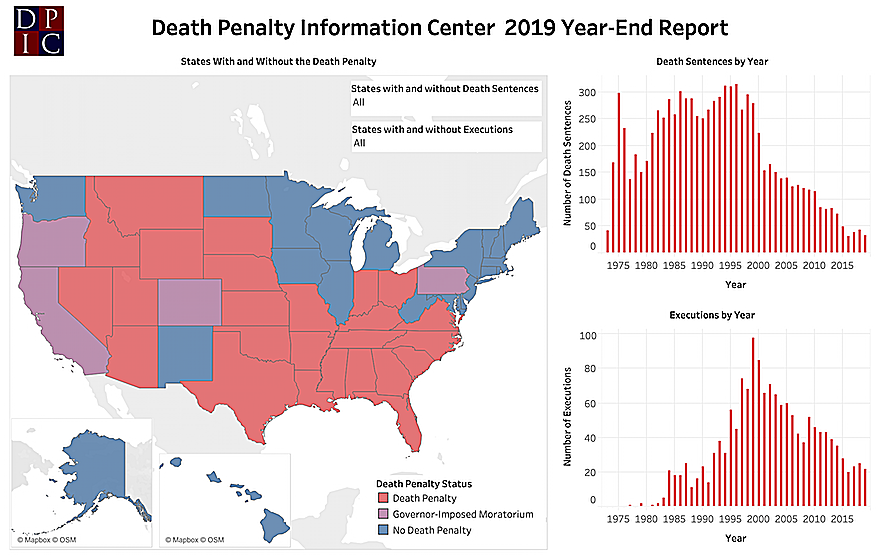 In the December 2019 edition of the Discussions with DPIC podcast, Death Penalty Information Center Executive Director Robert Dunham and Managing Director Anne Holsinger discuss DPIC’s 2019 Year End Report. The podcast explores the major themes presented in the year’s death-penalty news and developments, including innocence, declining use of capital punishment, and systemic problems revealed by the new death sentences and executions in 2019.
In the December 2019 edition of the Discussions with DPIC podcast, Death Penalty Information Center Executive Director Robert Dunham and Managing Director Anne Holsinger discuss DPIC’s 2019 Year End Report. The podcast explores the major themes presented in the year’s death-penalty news and developments, including innocence, declining use of capital punishment, and systemic problems revealed by the new death sentences and executions in 2019.
The two major themes of the 2019 report, Dunham said, were “that the death penalty appears to be disappearing in some parts of the country and eroding in others” and “the continued unreliability of the death penalty” in the cases in which it was imposed or carried out. He tells the stories of some of the year’s notable cases, including Rodney Reed and Domineque Ray. The conversation also covers some of the long-term trends in capital punishment, especially the sustained decline in new death sentences and executions.
Read more
Billy Joe Wardlow Faces Execution in Texas Based on False Evidence of Future Dangerousness
Posted: December 26, 2019
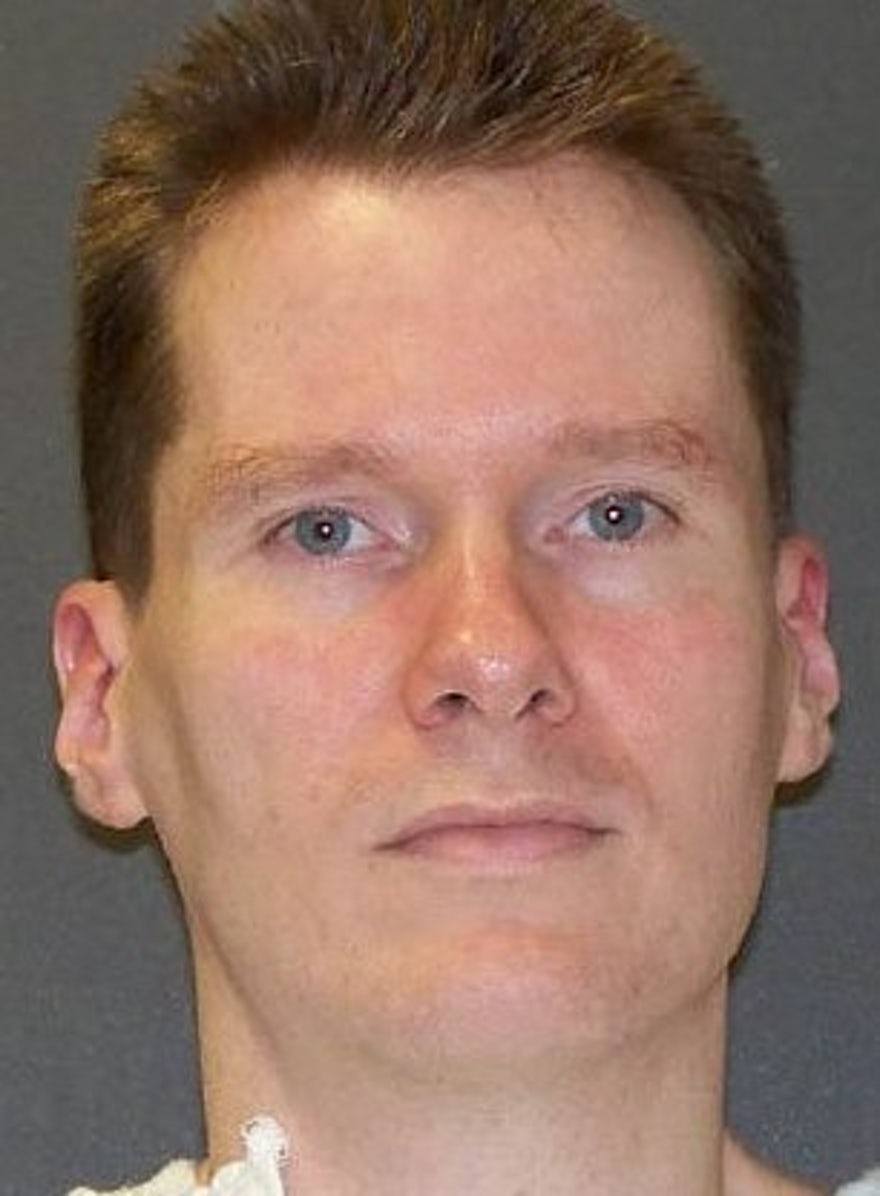 Billy Joe Wardlow (pictured) was 18 years old when he killed 82-year-old Carl Cole during a botched attempt to steal Cole’s car so that Wardlow and his girlfriend could pursue their fantasy of running away from their abusive homes in Carson, Texas to start a new life in Montana. Wardlow, who had no prior history of violence, has regretted his action ever since. In the cover story for the Winter 2020 issue of the magazine The American Scholar, Wardlow told veteran journalist and legal commentator Lincoln Caplan, “it was really, really, really stupid.”
Billy Joe Wardlow (pictured) was 18 years old when he killed 82-year-old Carl Cole during a botched attempt to steal Cole’s car so that Wardlow and his girlfriend could pursue their fantasy of running away from their abusive homes in Carson, Texas to start a new life in Montana. Wardlow, who had no prior history of violence, has regretted his action ever since. In the cover story for the Winter 2020 issue of the magazine The American Scholar, Wardlow told veteran journalist and legal commentator Lincoln Caplan, “it was really, really, really stupid.”
The troubled teen of a brutally abusive mother had attempted suicide three times between turning age 15 and killing Cole. Just weeks before the murder, Caplan says, Wardlaw had tried to drive a stolen truck off a bridge. In the county jail awaiting trial, Wardlow at the suggestion of the sheriff wrote a dramatic confession that the prosecution used against him at trial: “Being younger and stronger, I pushed him off and shot him right between the eyes. Just because he pissed me off,” it said. While in custody, Wardlow attempted three more times to kill himself.
The Texas jury that sentenced Wardlow to death in 1995 heard nothing about his traumatic upbringing and emotional troubles. Instead, in a practice repeated in numerous Texas capital cases, it was provided false testimony by a prosecution expert that Wardlow “would constitute a continuing threat to society” if they spared him the death penalty and sentenced him to life. Wardlow currently faces an April 29, 2020 execution date. But—after interviewing Wardlow’s current lawyers and other Texas death row prisoners about the person Wardlow has become almost 25 years later and exploring the false testimony concerning his supposed future dangerousness—Caplan’s in-depth article argues that Wardlow should not be executed.
With defense counsel who presented virtually no case for life, Wardlow’s sentence depended upon whether the prosecution proved the state-law requirement that he posed a continuing threat to society. To prove that, prosecutors presented uncontested testimony from Royce Smithey, an investigator for the Texas Special Prosecution Unit, which prosecutes felonies committed within Texas prisons. Smithey falsely testified that Wardlow would be placed in the general prison population if the jury sentenced him to life, where his presence would put prison guards and others at risk.
Wardlow’s current lawyers have filed a petition that is currently pending before the Texas Court of Criminal Appeals arguing that Wardlow’s death sentence was obtained through false testimony and that the Texas death-penalty statute is unconstitutional because “[t]he prediction of future dangerousness called for by the Texas capital sentencing statute cannot reliably be made for a capital defendant under 21 years old.” They presented a statement from Frank G. Aubuchon, a former Texas Department of Criminal Justice [TDCJ] correctional officer and prison administrator, who said that Smithey’s testimony contained “multiple falsehoods [that] served to mislead the jury into believing that TDCJ would be completely unprepared to imprison Mr. Wardlow in a secure environment unless he received a death sentence. Based on my decades of experience as a TDCJ corrections officer, administrator, and prison classifications expert" Aubuchon wrote, " I can say that this is categorically false.”
Wardlow maintains that he did not intend to kill Cole, but shot him in the head as the two struggled for Wardlow’s gun. Recounting the incident, a weeping Wardlow told Caplan, “you put a gun in someone’s face, they’re going to be terrified. So, really, two terrified people fighting over a gun is what it was. A terrified old man and a terrified kid. And the old man was winning. And when he started to take the gun out of my hand, I can remember I put my finger into the trigger, and pulled the trigger.”
Read more
Political Application of Capital Punishment on Prominent Display in Pakistan and Middle East
Posted: December 24, 2019
 The use of the death penalty as a political weapon was on display in late December 2019 in an extraordinary series of four unrelated cases in Pakistan and the Middle East.
The use of the death penalty as a political weapon was on display in late December 2019 in an extraordinary series of four unrelated cases in Pakistan and the Middle East.
In Pakistan, a special tribunal tried and convicted the nation’s former leader, General Pervez Musharraf (pictured), of high treason and sentenced him to death. Days later, a Pakistani civilian court convicted a Muslim professor of blasphemy and sentenced him to death. In Riyadh, Saudi Arabia, after a secret trial that lasted nearly a year, a criminal court sentenced five men to death for the murder of dissident journalist Jamal Khashoggi, but acquitted high-ranking officials who reportedly had close ties to the Crown. And in Bahrain, a political protester who said he and a co-defendant were tortured into falsely confessing to murder, warned that the Arab state intended to execute them under the cover of Christmas, while the attention of the western nations is focused on the holidays.
Musharraf, who is in self-imposed exile in Dubai, was tried in absentia for high treason and for subverting the country’s constitution. He was convicted and sentenced to death on December 17 by a 2-1 vote of a special court appointed by the Supreme Court. The death verdict has been described as a symbolic warning to the military about the primacy of civilian rule in Pakistan. The nation has had a history of military coups, but Musharraf was the first military dictator to be charged with high treason.
On December 21, a Pakistani civil court convicted Junaid Hafeez of blasphemy and sentenced him to death for allegedly having made verbal statements and Facebook posts in 2013 that insulted the Prophet Muhammad and the Quran. Junaid Hafeez, a lecturer at the Bahauddin Zakariya University in central Pakistan, had been held in solitary confinement since 2014, after his lawyer, a prominent rights activist, was murdered. Because of security concerns, Hafeez’s trial was conducted within the prison.
Al Jazeera reports that “at least 75 people have been killed in connection with blasphemy accusations in Pakistan since 1990, … includ[ing] those accused of the crime, people acquitted by the courts, their lawyers, family members and judges connected to their cases.” Amnesty International blasted the trial and verdict as “a travesty.” Hafeez’s current lawyer, who spoke anonymously out of safety concerns, and the Hafeez family said in a statement that the government’s failure to apprehend the murderers of his prior lawyer “signaled impunity for other would-be vigilantes. … Could any judge in such circumstances take the risk of doing justice?,” they said.
In Saudi Arabia, a criminal court on December 23 sentenced five men to death and released two others in the murder of journalist Jamal Khashoggi in the Saudi Consulate in Istanbul, Turkey. Deputy intelligence chief Ahmed al-Assiri, who prosecutors said had overseen Khashoggi’s murder, was acquitted and charges were dropped against Saud al-Qahtani, an adviser to Crown Prince Mohammed bin Salman. Khashoggi, a columnist for the Washington Post, had been highly critical of the Crown Prince, and the CIA had concluded in 2018 that bin Salman had ordered his assassination. Rights activists said the secret trial proceedings whitewashed the Saudi royal family’s possible involvement in the killing.
Also on December 23, Mohammed Ramadah, a condemned political prisoner in Bahrain, warned that the country intended to execute him and his co-defendant, Hussein Moosa, on Christmas, hoping that the world’s attention to the country’s human rights abuses would be diverted by the holiday. Human rights groups have said that Ramadhan's and Moosa's convictions in 2014 for planting a bomb that killed a policeman were the product of torture and the denial of legal representation.
Maya Foa, director of the human rights organization Reprieve, said "We fear the worst, because this isn't the first time the Bahraini authorities have cynically scheduled a death penalty verdict on Christmas Day.... Handing down the judgement while attention is elsewhere is a calculated attempt to avoid scrutiny."
Read more
DPIC Analysis: Death Penalty Erosion Spreads Across the Western United States in 2019
Posted: December 23, 2019
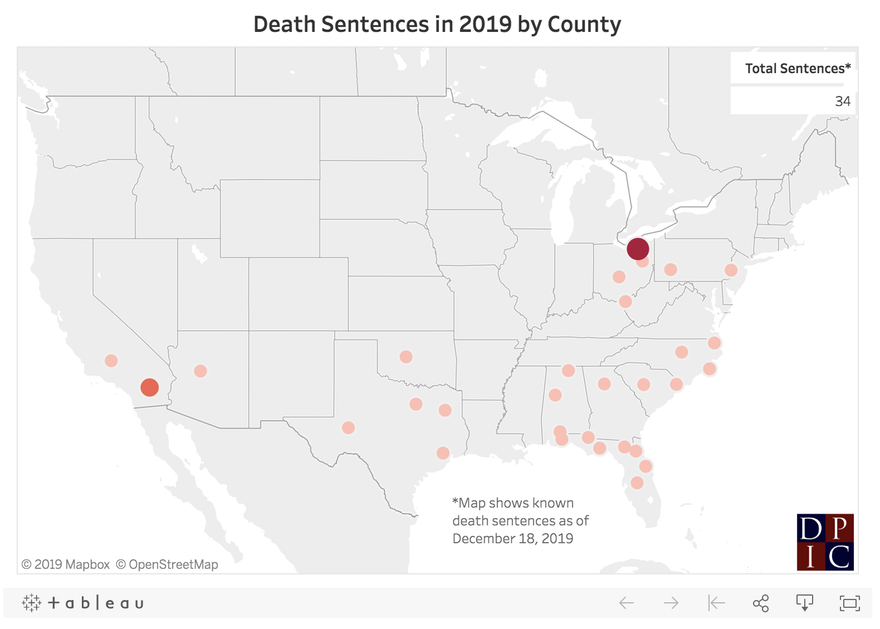 In a year of declining death-penalty usage across the United States, nowhere was the erosion of capital punishment as sustained and pronounced in 2019 as it was in the western United States. Continuing a wave of momentum from Washington’s judicial abolition of capital punishment in October 2018, one state halted executions and dismantled its death chamber, another cleared its death row, two cut back on the circumstances in which the death penalty could be sought and imposed, and the entire region set record lows for new death sentences and executions.
In a year of declining death-penalty usage across the United States, nowhere was the erosion of capital punishment as sustained and pronounced in 2019 as it was in the western United States. Continuing a wave of momentum from Washington’s judicial abolition of capital punishment in October 2018, one state halted executions and dismantled its death chamber, another cleared its death row, two cut back on the circumstances in which the death penalty could be sought and imposed, and the entire region set record lows for new death sentences and executions.
Calling capital punishment in California — the nation’s largest death-penalty state — “by all measures, a failure,” Governor Gavin Newsom announced in March 2019 that he was imposing a moratorium on executions and closing down its execution chamber. Newsom said the state’s death penalty “has discriminated against defendants who are mentally ill, black and brown, or can’t afford expensive legal representation. It has provided no public safety benefit or value as a deterrent. It has wasted billions of taxpayer dollars. But most of all, the death penalty is absolute. It’s irreversible and irreparable in the event of human error.”
California was the fourth western state in less than a decade in which governors had halted executions, and the move set aside the threat of imminent execution for more than 700 death-row prisoners, comprising more than a quarter of the entire U.S. death-row population. California joined fellow western states Colorado, Oregon, and Washington in putting executions on hold, and Newsom expressed hope that the moratorium would be an interim step towards the goal of repealing the state’s death penalty.
Historically, the West has accounted for fewer than 6% of executions in the United States since 1976. But executions have halted completely in the region in recent years. 2019 marked the fifth consecutive year with no executions west of Texas. Alaska, Hawaii, and New Mexico have no death penalty. California, Colorado, Montana, Nevada, and Oregon have not executed anyone in more than a decade, and will be joined by Utah in June 2020. New death sentences are also at historic lows for the region. The four new death sentences imposed in 2019 were the fewest in the West since California reinstated its death penalty in 1977, and fell by half from the prior record low set in 2018. Only three counties west of Texas sentenced anyone to death. (Click here to enlarge map.)
Courts and legislatures across the west also chipped away at the region’s use of capital punishment.
Read more
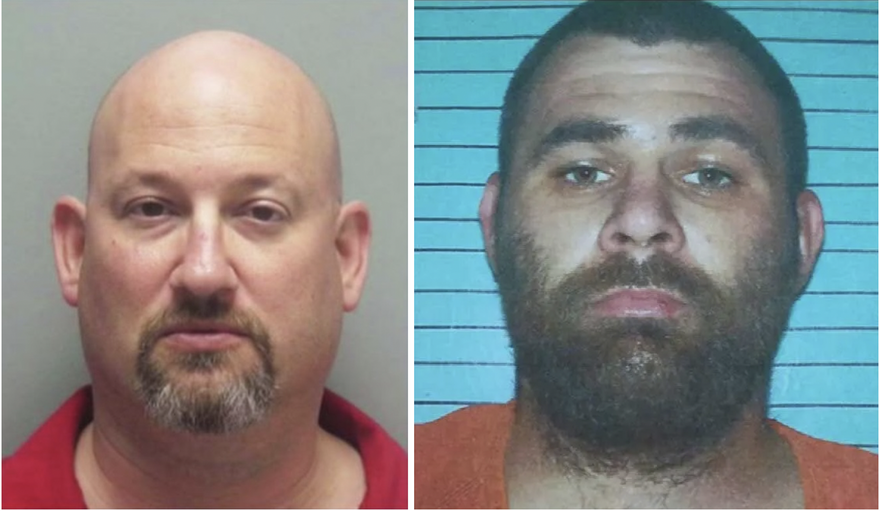 NEWS—January 3: In Florida, a trial judge in Fort Myers accepted the jury's recommendation and sentenced Mark Sievers to death for the murder of his wife. In Oklahoma, the court formally sentenced Byron Shepard to death for the murder of a Pottawatomie County police officer. They were the first death sentences of the new decade.
NEWS—January 3: In Florida, a trial judge in Fort Myers accepted the jury's recommendation and sentenced Mark Sievers to death for the murder of his wife. In Oklahoma, the court formally sentenced Byron Shepard to death for the murder of a Pottawatomie County police officer. They were the first death sentences of the new decade.
Before his sentencing, Sievers told the court: "Although a jury found me guilty, I’m innocent of all charges as I have maintained since the day this crime took place. I love my wife Teresa and our two daughters, Josie and Carmie, with all my heart. Our girls have tragically lost their mommy and now they’re about to lose their daddy as well, therefore, I respectfully ask the court for life. ... I will fight this wrongful conviction until I am proven innocent and set free to rejoin my family."
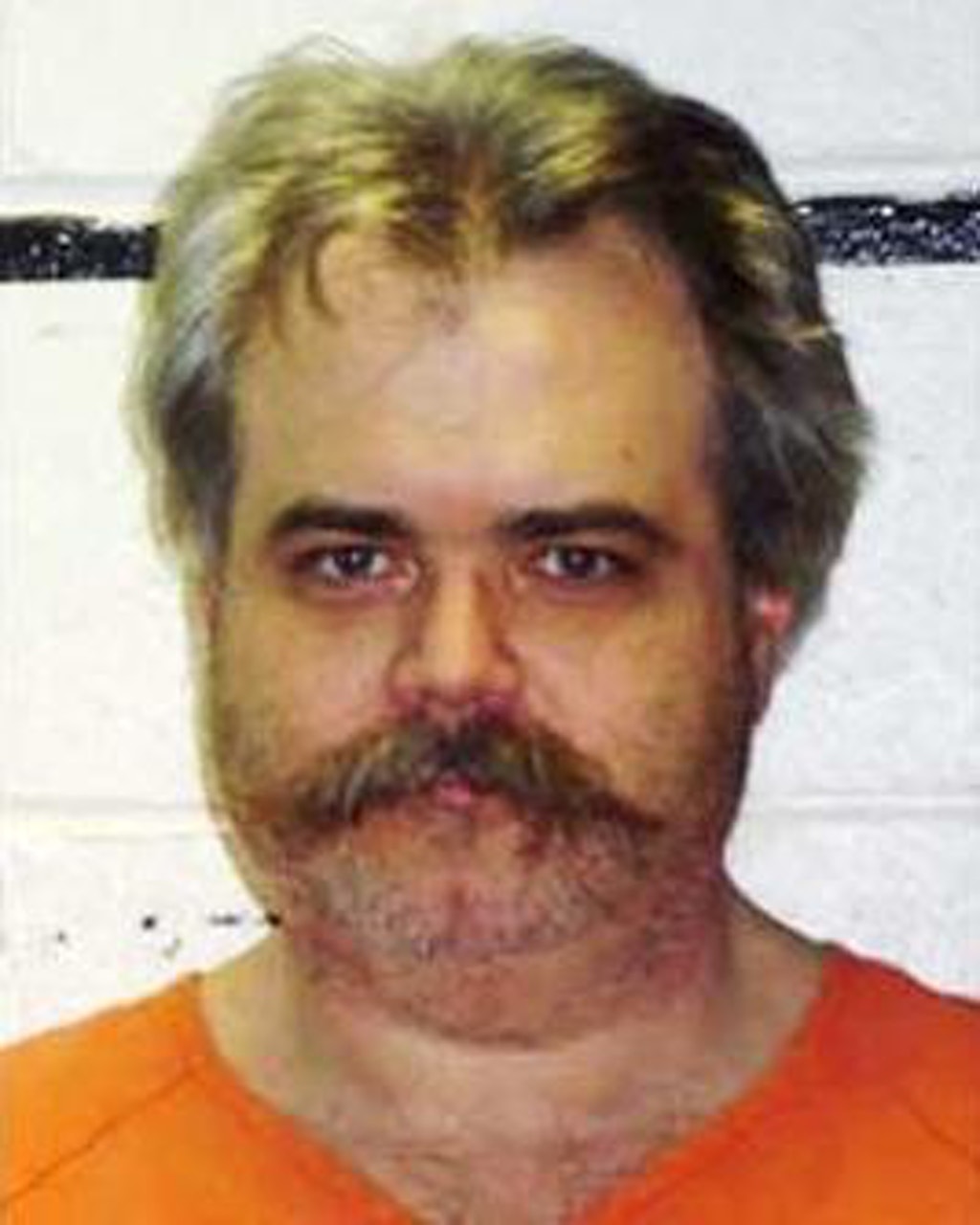 NEWS—December 30: The U.S. Court of Appeals for the Tenth Circuit has ordered an Oklahoma federal district court to conduct an evidentiary hearing to determine whether Edward Fields’ defense counsel provided ineffective assistance when she failed to investigate and present evidence of his brain damage during the sentencing phase of his 2003 death penalty trial. The district court had dismissed Fields’ ineffective assistance claim without allowing him to present evidence supporting his claim.
NEWS—December 30: The U.S. Court of Appeals for the Tenth Circuit has ordered an Oklahoma federal district court to conduct an evidentiary hearing to determine whether Edward Fields’ defense counsel provided ineffective assistance when she failed to investigate and present evidence of his brain damage during the sentencing phase of his 2003 death penalty trial. The district court had dismissed Fields’ ineffective assistance claim without allowing him to present evidence supporting his claim.
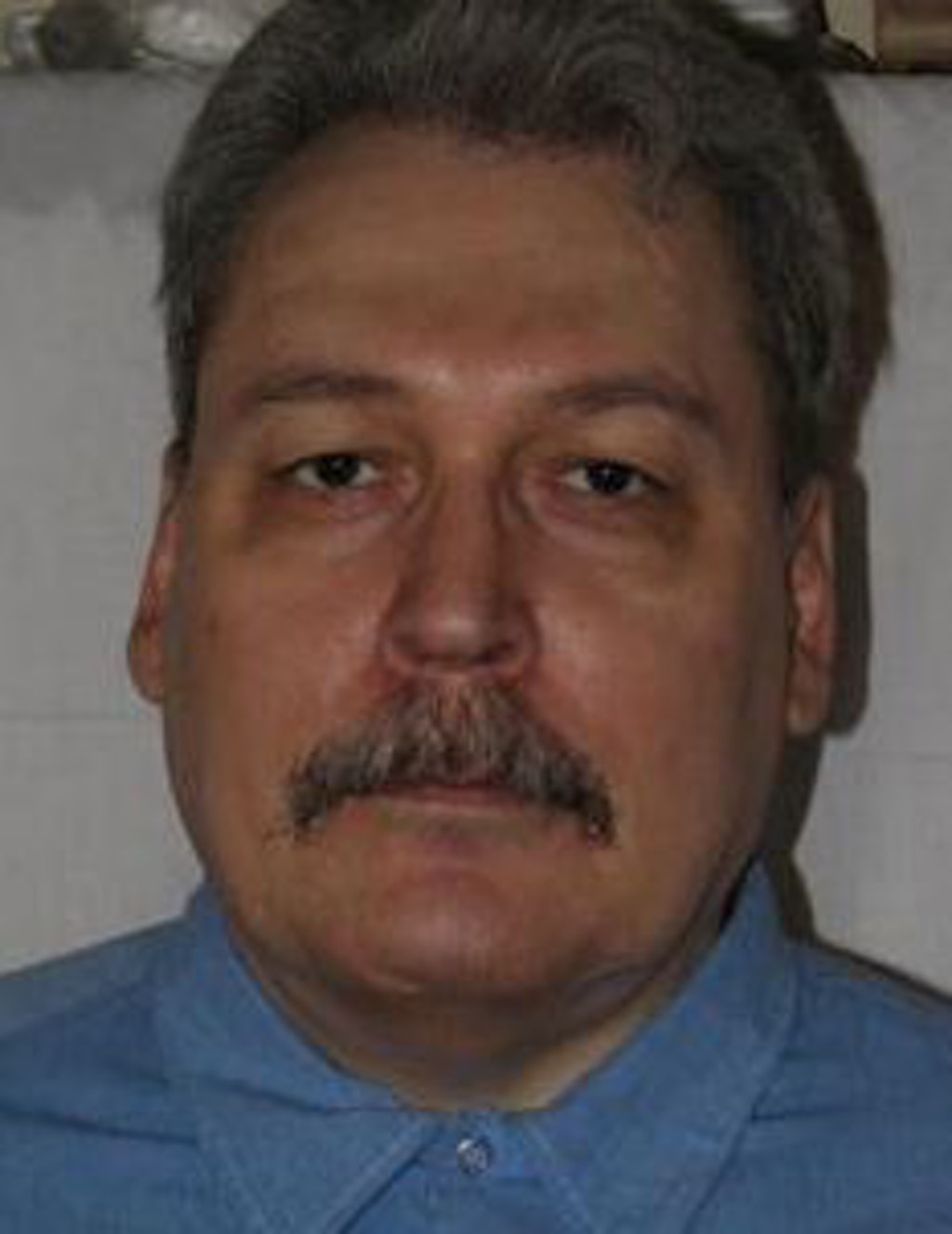 NEWS—December 26: The U.S. Court of Appeals for the Ninth Circuit has denied habeas corpus relief to California death-row prisoner Dean Phillip Carter, in a consolidated appeal of death sentences imposed on Carter in two different cases. Carter had been convicted of murder, rape, robbery, and burglary and sentenced to death in separate proceedings in Los Angeles and San Diego.
NEWS—December 26: The U.S. Court of Appeals for the Ninth Circuit has denied habeas corpus relief to California death-row prisoner Dean Phillip Carter, in a consolidated appeal of death sentences imposed on Carter in two different cases. Carter had been convicted of murder, rape, robbery, and burglary and sentenced to death in separate proceedings in Los Angeles and San Diego.




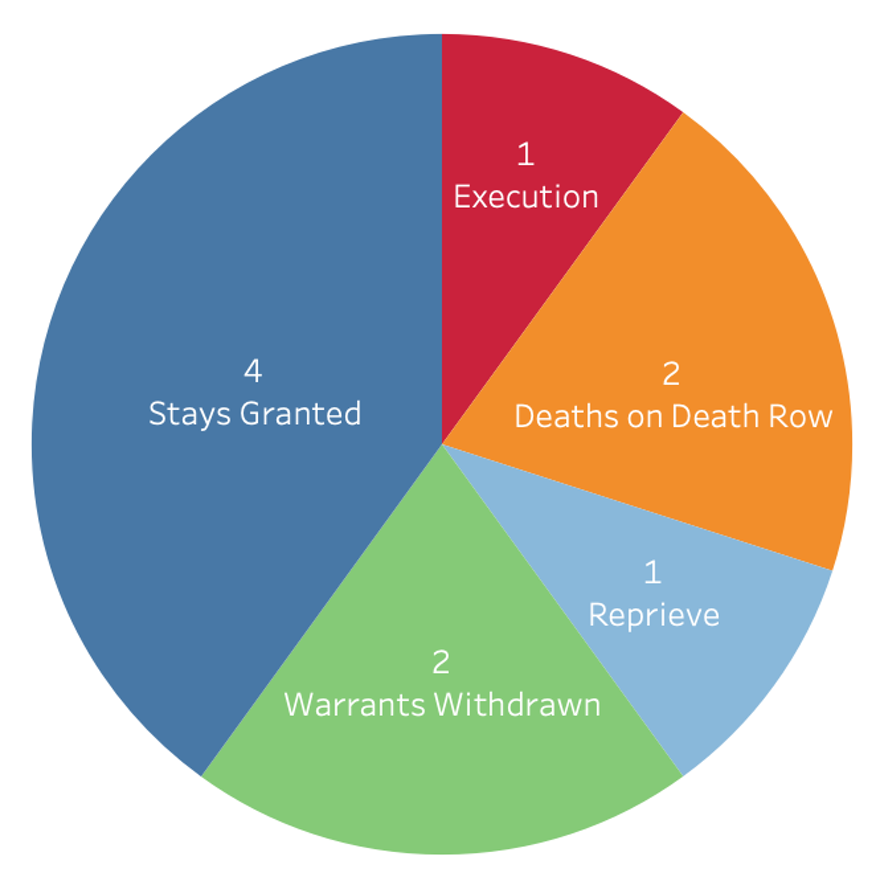
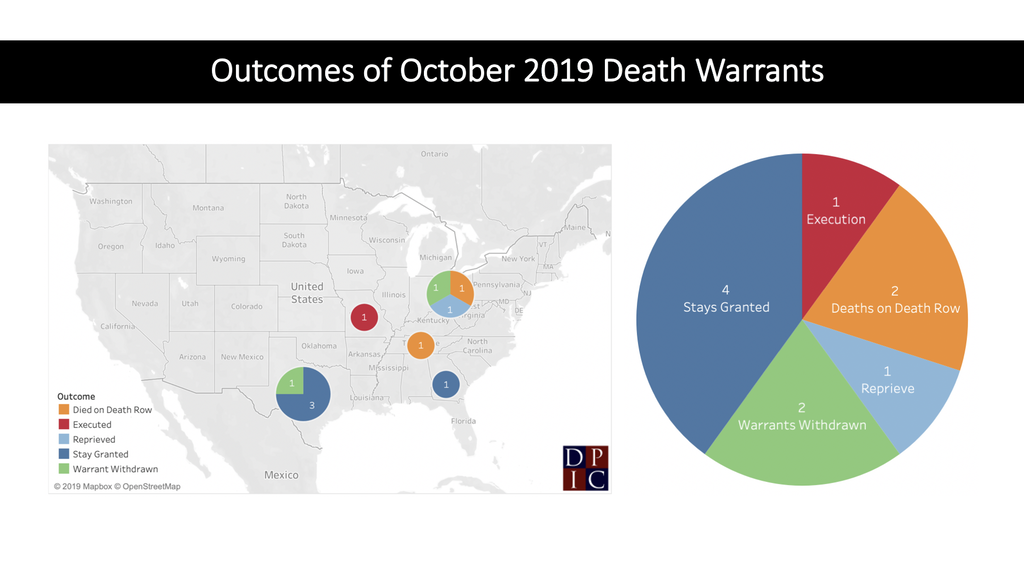

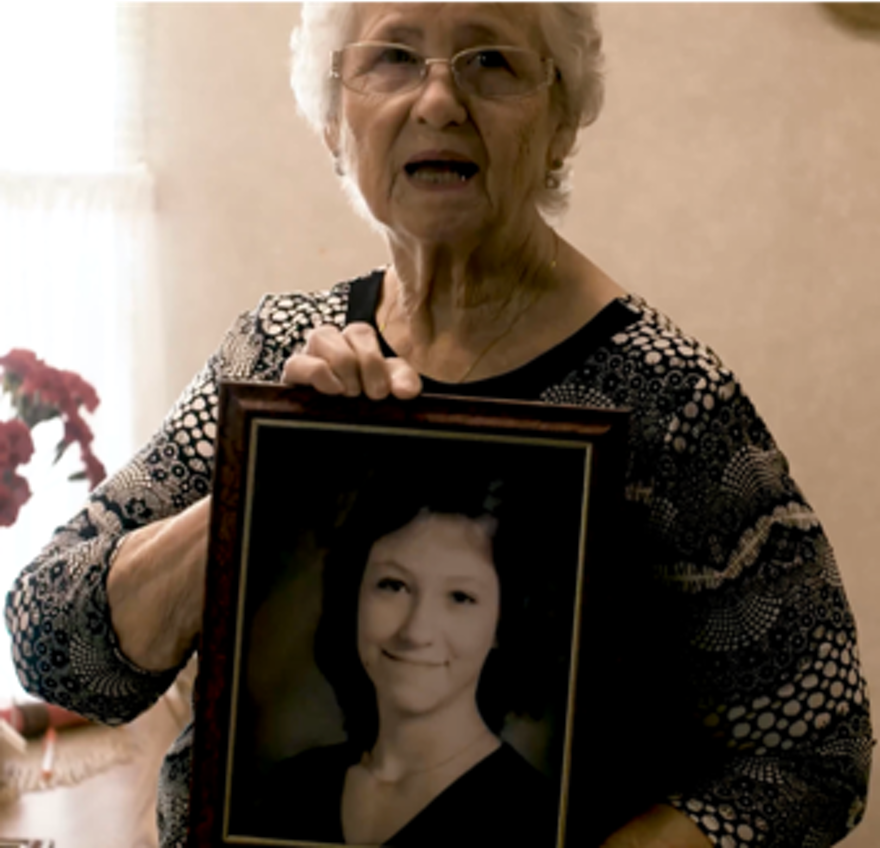

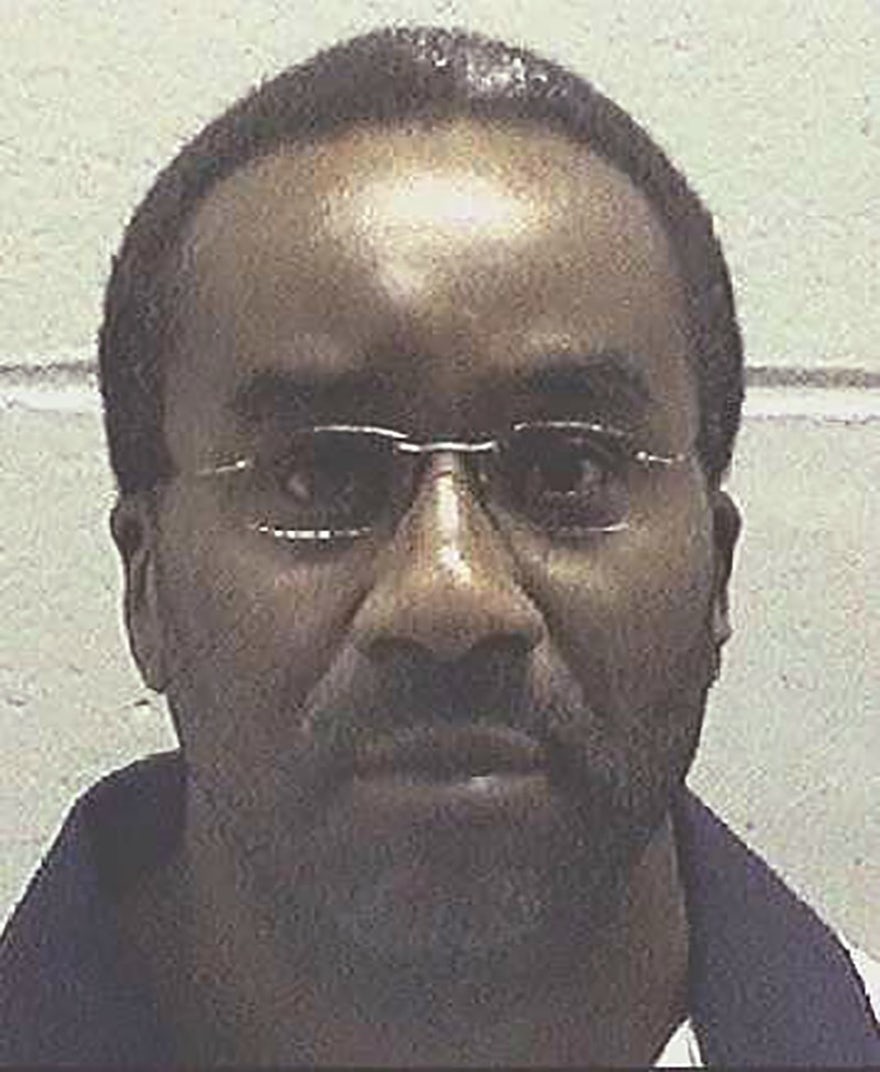
 NEWS—October 31: The Georgia Supreme Court has overturned the trial court's grant of relief and reinstated the death sentences imposed on
NEWS—October 31: The Georgia Supreme Court has overturned the trial court's grant of relief and reinstated the death sentences imposed on  NEWS—October 29: The U.S. Court of Appeals for the Fifth Circuit has upheld the death sentence imposed on Texas death-row prisoner
NEWS—October 29: The U.S. Court of Appeals for the Fifth Circuit has upheld the death sentence imposed on Texas death-row prisoner 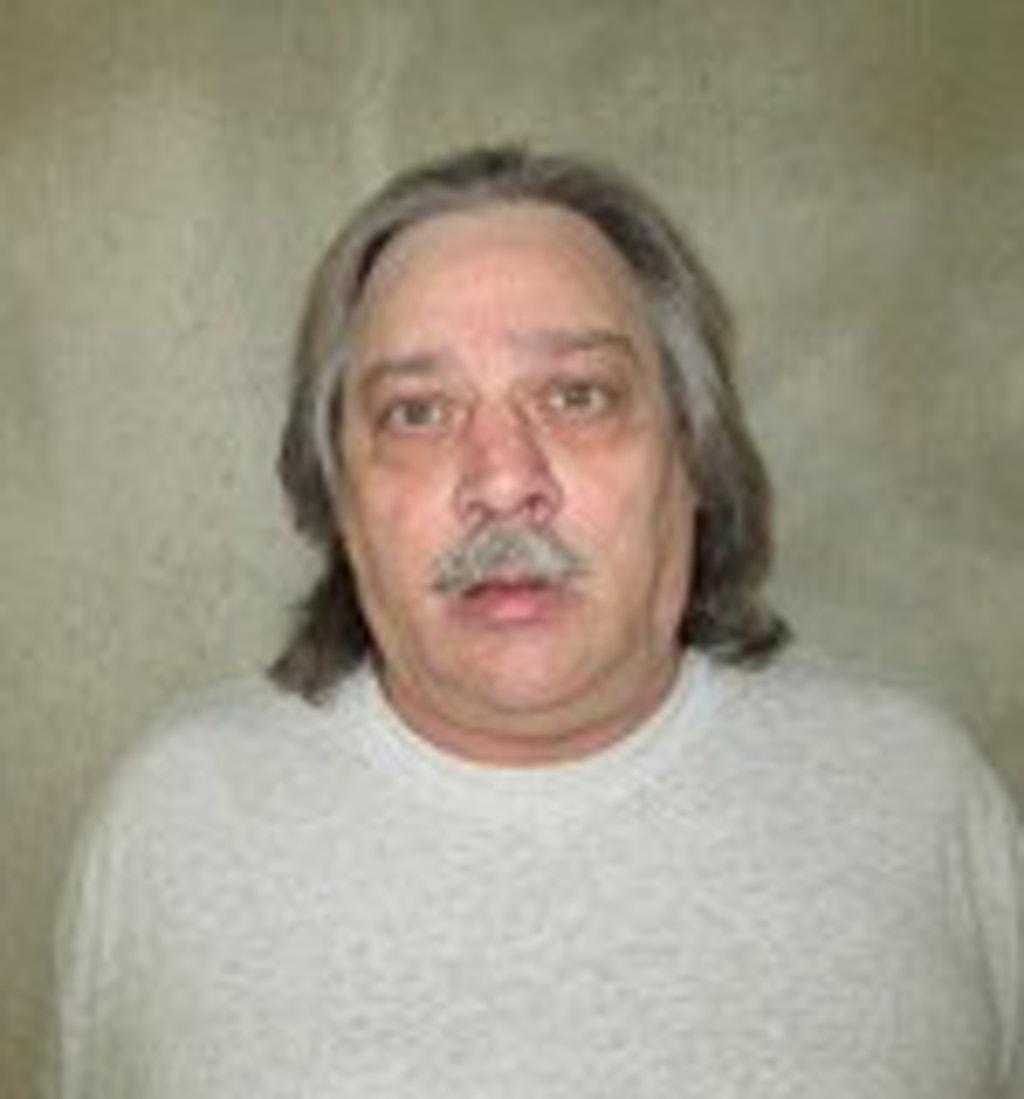 NEWS—October 28: The U.S. Court of Appeals for the Tenth Circuit has affirmed in part and reversed in part a decision by an Oklahoma federal district court dismissing death-row prisoner
NEWS—October 28: The U.S. Court of Appeals for the Tenth Circuit has affirmed in part and reversed in part a decision by an Oklahoma federal district court dismissing death-row prisoner  Arts and Entertainment
Arts and Entertainment Business and Industry
Business and Industry Computer and Electronics
Computer and Electronics Games
Games Health
Health Internet and Telecom
Internet and Telecom Shopping
Shopping Sports
Sports Travel
Travel More
More